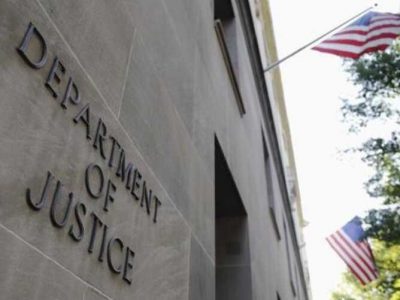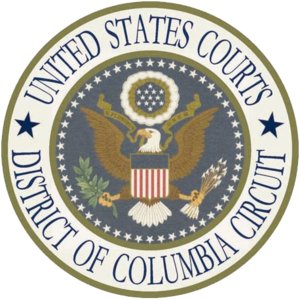U.S. Supreme Court
Environmentalism and the Supreme Court
Some cases belong to the environmentalist legal canon, others to an anti-canon of reviled precedents.
Every field has its texts that form part of its intellectual canon, and others that form a kind of anti-canon of rejected ideas. The same is true in environmental law. The issue goes beyond which side wins. From the pro-environmental side of things, some Supreme Court rulings form guideposts to rely on, whereas others represent …
Continue reading “Environmentalism and the Supreme Court”
CONTINUE READINGSupervillains of the Enviro-Verse
🏴☠️ For your amusement: a rogues gallery of anti-Green villainy. 🏴☠️
Movements are defined as much by who and what they oppose as what they favor. To understand environmentalism, you have to know how it defines its opponents. Reality, of course, is always nuanced, but nuance isn’t much fun. Although I was originally going to provide a more serious treatment, I decided instead to have a …
Continue reading “Supervillains of the Enviro-Verse”
CONTINUE READINGThe Illusions of Takings Law
Nothing is as it seems, when the issue is whether a regulation is a “taking” of property.
For the last century, the Supreme Court has tried to operationalize the idea that a government regulation can be so burdensome that it amounts to a seizure of property. In the process, it has created a house of mirrors, a maze in which nothing is as it seems. Rules that appear crisp and clear turn …
Continue reading “The Illusions of Takings Law”
CONTINUE READINGSupreme Court Finds California Labor Access Regulation Works Unconstitutional Taking of Private Property
What Are the Implications of the Cedar Point Nursery Decision for Environmental, Natural Resources & Public Health Programs?
In a closely-watched property rights decision, the U.S. Supreme Court today held unconstitutional a longstanding California regulation allowing labor unions intermittent access to agricultural workplaces for labor organizing purposes. Reversing a decision of the Ninth Circuit Court of Appeals, a 6-3 Supreme Court majority ruled that the challenged regulation triggers a per se, compensable government “taking” …
CONTINUE READINGThe Supreme Court’s (Non-)Decision in Major Climate Change Case
BP P.L.C. v. Baltimore Ruling a Technical Win for Energy Defendants–But There’s Less There Than Meets the Eye
Today the U.S. Supreme Court issued its first major environmental decision of the Court’s current Term–and in a climate change case, no less: BP P.L.C v. Mayor and City Council of Baltimore. Superficially, the multinational energy corporations sued by the City of Baltimore prevailed, in a 7-1 majority opinion authored by Justice Neil Gorsuch. But …
Continue reading “The Supreme Court’s (Non-)Decision in Major Climate Change Case”
CONTINUE READINGFive Myths About Climate Policy
Debate about climate policy is often distorted by misconceptions.
In this post, I want to talk about some of the ideas that make it hard to have sensible discussions about climate policy. I don’t mean outright climate denial. Instead, I’m talking about less blatant misconceptions that keep many people from thinking seriously about cutting carbon emissions. Myth #1. EPA climate rules are a regulatory …
Continue reading “Five Myths About Climate Policy”
CONTINUE READINGThe Nondelegation Doctrine and Its Threat to Environmental Law
Here’s what the doctrine means and why it has suddenly become so significant.
If you ask Supreme Court experts what keeps them up at night, the answer is likely to be the non-delegation doctrine. If you are among the 99.9% of Americans who’ve never heard of it, here’s an explainer of the doctrine and what the 6-3 Court might do with it. What’s the nondelegation doctrine? Simply put, …
Continue reading “The Nondelegation Doctrine and Its Threat to Environmental Law”
CONTINUE READINGA Preview: Major Property Rights Case Currently Before U.S. Supreme Court
Decision in Cedar Point Nursery Could Imperil Key Health, Safety & Environmental Programs
On Monday, the U.S. Supreme Court will hear oral arguments in a major property rights case from California: Cedar Point Nursery v. Hassid. That litigation arises in a labor law context. But, depending on how the Court rules, the case could have major, deleterious impacts on a wide array of health, safety and environmental programs. …
Continue reading “A Preview: Major Property Rights Case Currently Before U.S. Supreme Court”
CONTINUE READINGImplementing the “Biden Environmental Litigation Bounce-Back”
Encouraging Signals As To How Biden’s USDOJ Will Resolve Environmental Lawsuits Originally Brought Against the Trump Administration
The transition from the Trump Administration to the Biden Administration makes for fascinating spectator sport. President Biden’s first month in office reveals that he and his Administration are committed to undoing the widespread damage former President Trump and his minions engineered across so many policy and legal areas. The environment is a particularly prominent example. …
Continue reading “Implementing the “Biden Environmental Litigation Bounce-Back””
CONTINUE READINGLiberal Judges Embrace Textualism
Why are these judges suddenly so enthusiastic about Justice Scalia’s approach to reading statutes?
Two of Trump’s major regulatory efforts were recently thrown out by the D.C. Circuit. The liberal judges who wrote the opinions latched onto a conservative theory called textualism, which was most prominently advocated by Justice Antonin Scalia. While judges in an earlier era tried to interpret Congress’s intent in writing a law, textualists focus solely …
Continue reading “Liberal Judges Embrace Textualism”
CONTINUE READING











